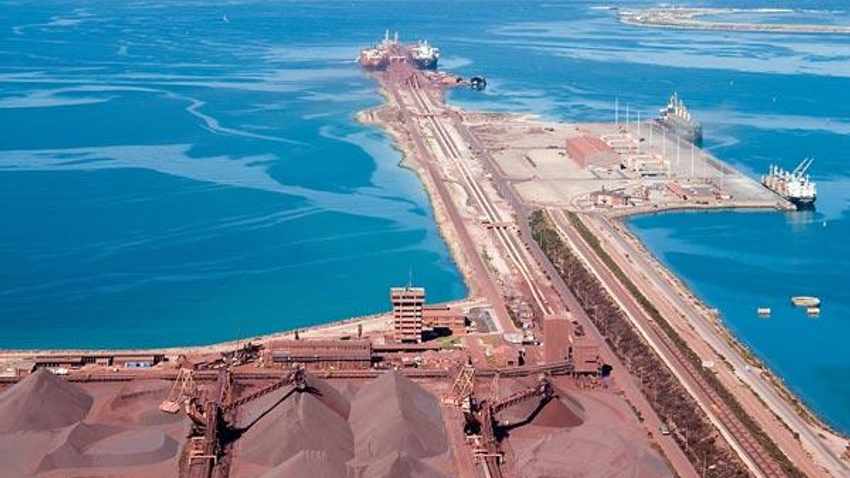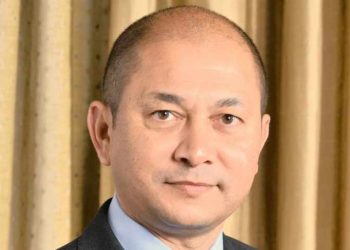JOHANNESBURG – The Ports Regulator of SA Tribunal expressed grave concern about the stance adopted by the Transnet National Ports Authority (TNPA) at the Port of Saldanha in that it appeared to have reduced itself to a miniscule player that would readily mulct itself in the dust of a competitive arena.
The Tribunal made this statement in the ruling of the hearing involving the Sunrise Energy and Avedia Energy, where it said the TNPA was expected to rise above the dispute and manage the port in keeping with its lofty mandate to represent the interests of the South African Government, its economic agenda and the interests of the wider public interest.
The Tribunal found that the TNPA and Sunrise ganged up against competing Avedia, making it virtually impossible for it to operate at the Port of Saldhana in the Western Cape.
The Tribunal also debunked the insinuation by the TNPA and Sunrise that Avedia’s interim operations, which involve offloading liquefied petroleum gas (LPG) at the quayside, might result in a catastrophe similar to the Beirut disaster.
“What we find highly troubling is the attempt by the TNPA to use the issue of risk as a major concern for its decision to prohibit quayside offloading of LPG when, as late as in May 2018, it was espousing the narrative that it was safe to offload LPG quayside, that the activity did not compromise the safety of the port and that there had not been any unfavourable incidents in the past connected to this activity.
“This narrative is contained in broad-brushed strokes in two letters written by the TNPA dated the 22nd November 2017 and the 14th May 2018 … What makes the TNPA suddenly adopt a diametrically opposed position on risk and safety? It did not attempt to explain this contradiction.
“We must, therefore, accept that it represents the official TNPA position on risk and safety inherent in the quayside offloading of LPG and that its latest stance before the Regulator is contrived in order to support its defeatist position taken against Avedia,” said the Tribunal.
The Tribunal said for the TNPA to sit back and simply tell the Regulator that it would not be prepared for an unexpected LPG explosion within the port was unacceptable and was tantamount to a dereliction of duty. “It is the statutory obligation for the TNPA to be reasonably prepared to handle even the most serious eventuality within the port and must have a safety management plan to do so. It is enjoined by the Ports Act to do so.”
Prior to the hearing Sunrise is reported to have warned the TNPA that the way its competitor, Avedia, had been offloading LPG could result in a possible Beirut-style explosion at the Port of Saldanha Bay.
Avedia was afforded the right to offload quayside until the construction of the Sunrise loading facility and its auxiliary pipeline as well as the completion and commissioning of the Avedia interconnection to Sunrise’s pipeline. Its operations came to a halt on June 28, 2018, when the TNPA took a decision refusing Avedia further permission to offload LPG at the quayside before Avedia could interconnect with the Sunrise pipeline.
The Tribunal found that the TNPA had, as an afterthought, woven the narrative of risk and safety concerns into its June 28, 2018 decision. “This aspect has been elevated to the status of an intolerable bogeyman by the TNPA and Sunrise.
“All of their witnesses before the Tribunal have latched onto this aspect and paraded it as a unified narrative in an endeavour to convince us that it is a plausible reason not to allow quayside offloading of LPG. We reject this narrative as being unnecessarily exaggerated and self-serving.”
The Tribunal said the risk and safety concern was ever-present when offloading LPG even with the multi-buoy mooring because of the fact that the product is a volatile and temperamental substance capable of ignition and explosion if not handled with due care and diligence.
“We were drawn to the Beirut disaster by the parties and told that this may be a possible outcome within the Port of Saldanha should Avedia be allowed to offload quayside. We believe this is exaggerated and the safety risks were not sufficient to prevent prior authorisations granted to Avedia and other parties.
“In any event, we are of the view that the safety risks can be managed, as previously done. We also wish to point out that ports are deemed to be ‘hazardous zones’. Every activity carried out within the confines of the port carry with it a measure of risk and is accompanied by the concomitant safety concerns,” said the Tribunal.
What was required in each and every instance, the Tribunal said, was the necessary care and skill to be aware of such risks and safety concerns and, more importantly, for the TNPA to be adequately prepared to manage and mitigate every situation that may occur.
The Tribunal accepted that the quayside ship-to-truck method was not optimal, but expressed concern that the risks were overstated for the purposes of the hearing, particularly against the background of the prior authorisations granted to Avedia and to the other parties referred to in the evidence.
The Tribunal ordered the TNPA to grant Avedia temporary authorisations to offload LPG quayside at the Port of Saldanha directly from ship to truck for transportation to Avedia’s storage facility and permits it to do so until the interconnection to the Sunrise pipeline is effected and commissioned, and that the TNPA grants to Avedia the requisite site access certificates to permit it to do so.
BUSINESS REPORT


















